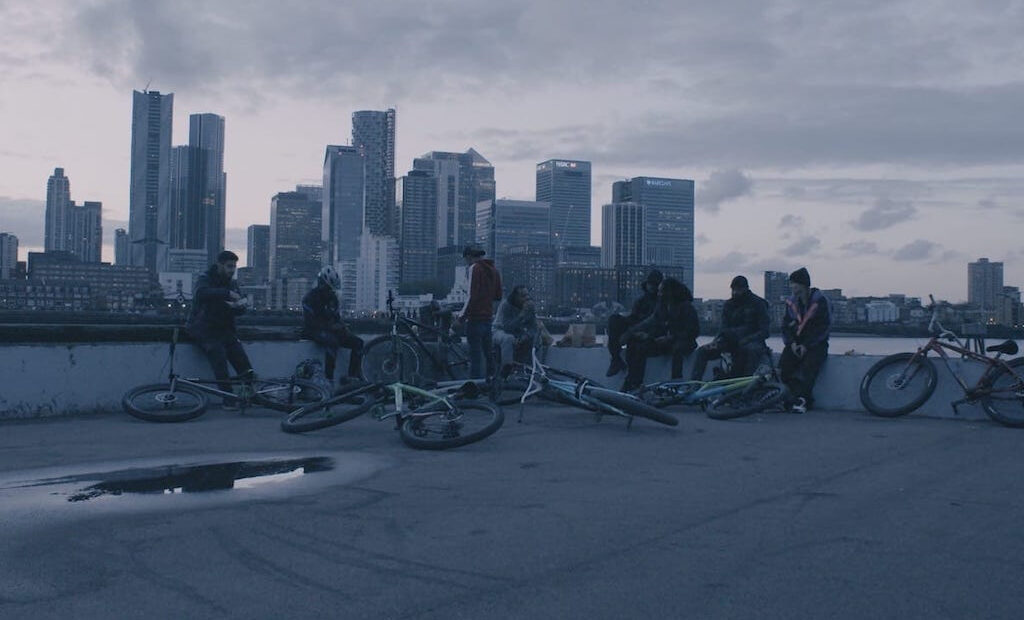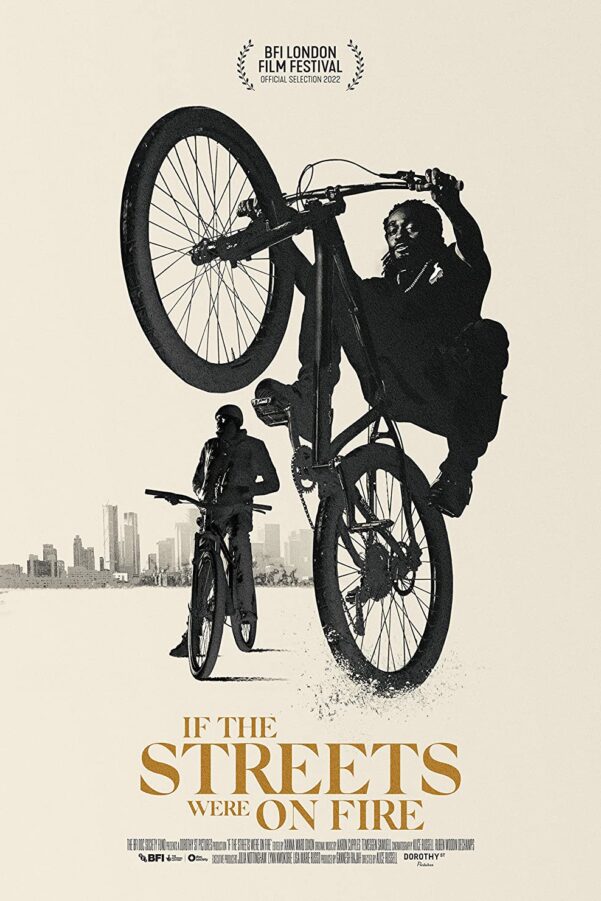If the Streets Were on Fire

The Human Rights Watch Film Festival is underway at the Barbican, bringing a selection of works dealing with urgent social issues and tough challenges faced by individuals and communities worldwide. The programme covers a wide variety of themes and a large geographical area, but London itself is at the centre of filmmaker Alice Russell‘s If the Streets Were on Fire.
The documentary deals with knife crime, but not directly: the protagonists are a group of enthusiastic bike riders who meet up regularly to cycle across the capital, doing wheelies, tricks and acrobatics as they go. This community of bikers is called BikeStormz and was founded by social activist Mac Ferrari-Guy to keep young people in crime-ridden areas off the streets, where they would be at high risk of becoming involved in violent gang activities.
Since Mac himself faced the same dangers as a teenager, he knows that such a project can literally save lives. For this reason, he fights all obstacles with great passion – among them complaints of antisocial behaviour from the general public, and the police constantly intervening to act on them. The group is often stopped by concerned officers who eventually try to confine their outings to a specific, isolated area in the outskirts of the city. Riding through central London, however, is an essential aspect of Mac’s project as it takes the teenagers out of their home areas, beyond postcode wars, and into a wider neutral zone where they can integrate.
Alice Russell shoots conversations between the BikeStormz founder and the police, but also many exchanges involving Miles, another mentor to the youths, a passionate biker and young father who has changed his life after being released from prison. Teenagers whose presence on the streets would be considered threatening by most are shot in fly-on-the-wall style as they joke innocently and practice their tricks on wheels, most of them stating that they find their freedom through cycling.
The main strength of this documentary – and what makes it essential viewing – is that it covers so many different topics, and can initiate a myriad of interesting debates; austerity, governmental shortcomings, the role of education, the importance of communities, what bike riding represents, and so much more, are all part of the conversation. Notwithstanding, the film doesn’t feel overdone but rather flows very smoothly and helps the audience connect with a vital issue from a fresh, authentic perspective that, for once, is tinged with hope and optimism.
Mersa Auda
If the Streets Were on Fire is available to stream via the Human Rights Watch Festival website from 20th until 26th March 2023. For further information visit here.
























Facebook
Twitter
Instagram
YouTube
RSS